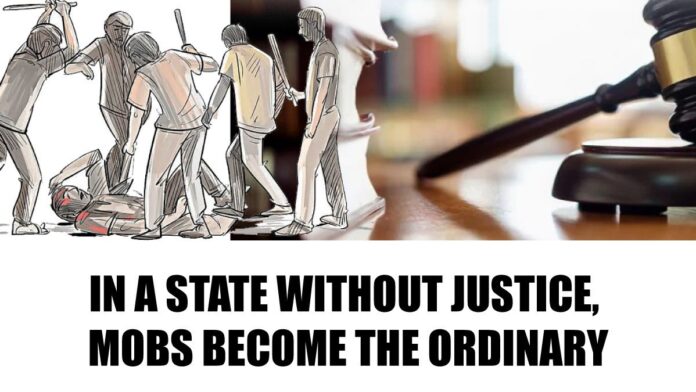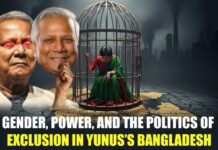Bangladesh stands at the edge of a profound crisis. In recent months political rampages, mob violence spreading from village to city, and extrajudicial punishments have rent the country’s social fabric to shreds. This chaos is not mere local rumor—independent human-rights groups and investigative reports repeatedly register it as a genuine threat to public safety. The urgent question now is: have we lost the rule of law and slipped into a culture of vengeance?
The public’s fury is unmistakable. Years of economic blows, entrenched corruption, and administrative failure have left people angry and exhausted. Yet something more terrifying looms: if the very institutions citizens turn to as their last refuge—the administration and the government—become havens for mob terror, then the law remains nothing but ink on paper. International observers have warned: without transparent investigations and accountability, this trend will harden into institutionalized criminality.
In this hour the Yunus-led interim government faces a moment of reckoning. If it fails to guarantee security, if it does not act decisively to stop fear and abuse, or if it shelters the crimes of groups under its protection, this will be more than administrative weakness — it will be a moral collapse. The people will then place their faith in vengeance, and that path will set a dangerous precedent for the state.
Two roads lie before us: to rebuild a state of justice through transparency and accountability — or to surrender to a culture of revenge that will tear apart the freedoms and moral compass of future generations. The choice at the ballot is in our hands.




